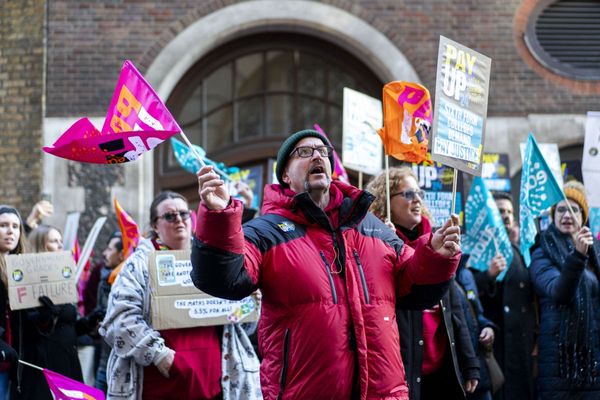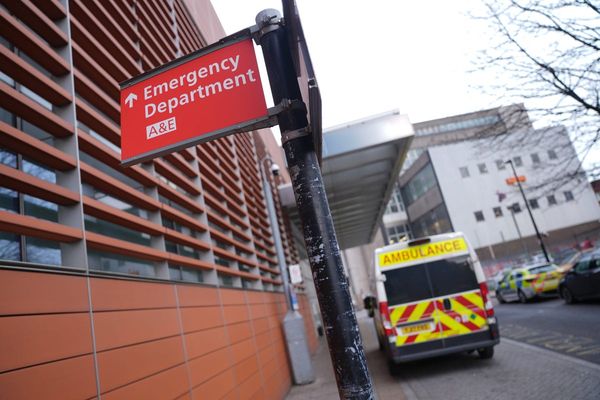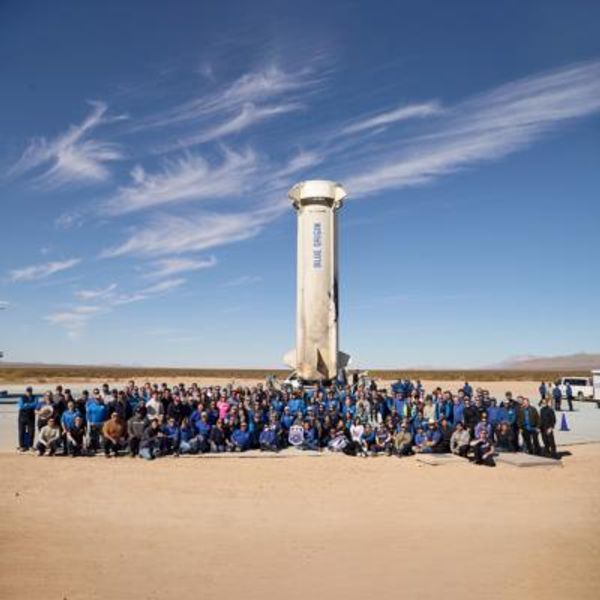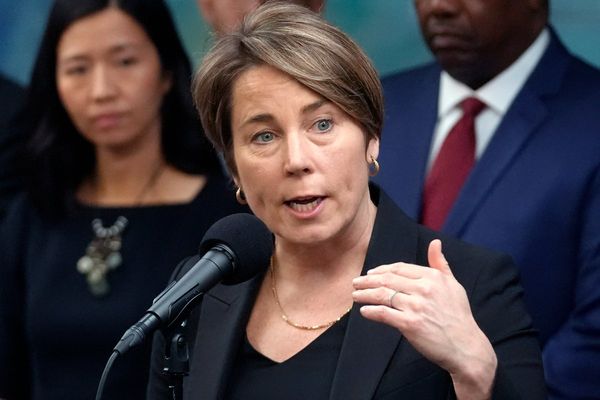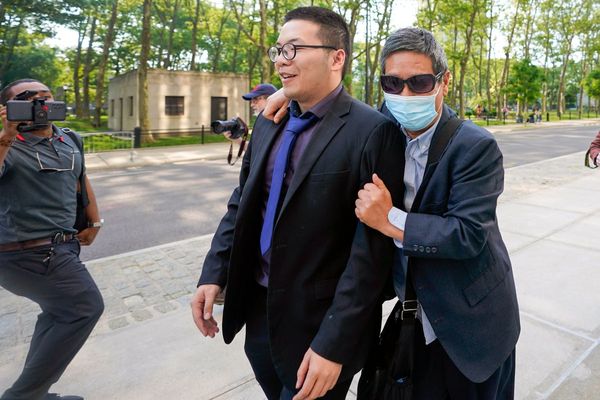
Despite the White House decision to withdraw from the World Health Organization in the midst of a deadly pandemic, American officials have sought to maintain some U.S. influence at the global health agency, promoting a far-reaching reform initiative and granting U.S. diplomats the authority to continue working on WHO programs that fight polio, HIV, and other infectious diseases.
But that effort has been undercut by a new set of orders from the State Department to sharply curtail diplomatic contact with WHO officials—even though the United States will remain a member of the global health agency until next summer—as well as a U.S. decision to cut funding for the WHO.
The contradictory currents in U.S. policy underscore the challenges facing the Trump administration as it grapples with the fallout of a pandemic that has killed nearly 200,000 Americans: It wants to punish the WHO for what it claims is an unwillingness to hold China accountable for failing to act swiftly to contain the coronavirus. But it still relies on the U.N. agency to confront a broad range of deadly diseases that could spread across U.S. borders if not properly tackled abroad.
“It seems the United States doesn’t want to completely cut its relationship with the WHO,” said Yanzhong Huang, a senior fellow for global health at the Council on Foreign Relations. “Like it or not, the U.S. can’t live without this organization.”
Earlier this month, American allies Germany and France rebuffed a request from U.S. Assistant Health Secretary Brett Giroir to endorse a U.S.-drafted road map for WHO reform, preferring to develop their own initiative.
The U.S. paper included an array of proposals aimed at enhancing the WHO’s ability to respond rapidly to an emerging pandemic and strengthening its power to investigate outbreaks, as well as calling out countries that fail to fully disclose the emergence of infectious diseases on their soil.
“We need to consider how best to strengthen Member States’ responsibilities in an impartial and objective manner when they are not meeting obligations,” read the confidential U.S. paper, which was obtained by Foreign Policy. Giroir and Andrew Bremberg, President Donald Trump’s ambassador to the United Nations in Geneva, shared the draft with members of the G-7 nations and with WHO Director-General Tedros Adhanom Ghebreyesus the first week of September.
In contrast to those U.S. efforts to maintain a leadership role in the WHO, the State Department has issued a sweeping directive to U.S. government personnel abroad to pare back interactions with the organization’s officials and require them to seek prior approval to participate in WHO-related events and meetings, a full year before the U.S. withdrawal from the body takes effect.
U.S. government personnel can only engage with WHO personnel in “specific, limited circumstances” and must seek prior approval to participate in any WHO events that have a public or media component, according to a cable sent to all diplomatic and consular posts abroad that was obtained exclusively by Foreign Policy.
Still, the cable appears to offer wide latitude for exemptions for activities that promote U.S. national security and economic and commercial interests, including meetings on international standards for tobacco and pharmaceuticals. It also offers exemptions for programs designed to protect global health, including efforts to eradicate polio and Ebola, that for some observers highlights how integral the WHO remains to American health and trade efforts beyond the coronavirus.
Trump announced in May that the United States would withdraw from the WHO, after accusing the organization of mishandling the coronavirus pandemic and catering too much to China. The U.S. withdrawal would legally take effect next July, though Democratic presidential nominee Joe Biden said he would reverse Trump’s decision if elected in November.
Many public health experts denounced the decision, fearing it will hamstring domestic and international efforts to tackle the pandemic.
The State Department did not respond to a request for comment.
Last week, State Department officials said the Trump administration would redirect some $80 million it owes the WHO to other U.N. programs. Alma Golden, a senior official at the U.S. Agency for International Development, said during a Sept. 2 briefing that there were exceptions to the U.S. government funding halt, and she said the United States would cooperate in cases “in which WHO has the unique capabilities that an alternate partner could not replicate at this time.”
“USAID is determined to ensure that our withdrawal from WHO does not affect the level of our overall health assistance to the most vulnerable,” Golden said. Administration officials did not name what alternative partners they were referring to.
Nancy Cox, a virologist and former senior official at the U.S. Centers for Disease Control and Prevention, said a U.S. withdrawal from the WHO could heighten the risk of more deadly diseases spreading to the United States in the long run, even with one-time exemptions for specific programs.
She cited global polio eradication efforts as a prime example. “It has been very, very difficult to get the number of polio cases down to where we currently are. There’s a real fear that if the U.S. doesn’t provide additional personnel, and funding, and technical support, and so on, to complete eradication, there will be a surge in polio cases over the coming years,” she said.
“I also think that people here take these things for granted, that we’ve conquered a number of infectious diseases via global immunization programs,” she added. “But it’s hard to understand what the ripple effects might be because there’s so many aspects of WHO activities that could be compromised without U.S. funding and scientific and technical expertise.”
The United States, meanwhile, has been discussing its reform road map for several months with the health ministries of G-7 countries. It calls for establishing a new early warning system, called an “amber alert,” that would trigger a swift response to an evolving threat, and it seeks to increase the authority of U.N. disease hunters to gain speedier access to outbreak areas.
In a veiled reference to the WHO’s effusive praise of China’s response to the pandemic, the paper urges “increased objectivity and impartiality” at the agency and calls for the creation of a new post, the chief scientist’s office, to improve the scientific quality of WHO’s work.
The paper calls for the establishment of a regular review of member states to ensure they are complying with their obligations to prepare for future pandemics. Ironically, it also encourages states to collaborate in an effort to “expedite the development, approval, manufacture, and distribution of safe, effective and affordable COVID-19 vaccines, diagnostics and therapeutics.”
But the Trump administration said last week it would not join a WHO-led effort to develop and distribute a coronavirus vaccine targeted at the most vulnerable populations globally, including front-line workers, the ill, and the elderly. The United States—which has signed billions of dollars in contracts with pharmaceutical companies seeking to produce a vaccine—maintains it will share any effective vaccine with other countries once it has vaccinated the entire American population.
While Germany and France have expressed support for some of the reform proposals that would strengthen the global health agency, they decided to pursue their own separate reform initiative, highlighting the self-inflicted erosion of U.S. influence.
“They quit the conversation,” said Huang of the Council on Foreign Relations. “The U.S. wanted to play a leadership role and that upset their European counterparts.”
A senior diplomat familiar with the negotiations said Europeans were frustrated by America’s contradictory approach to the WHO and global health threats.
“Everyone understands that global health is a highly politicized issue in U.S. domestic politics, but they have to fish or cut bait and decide if they want to be on the boat or not,” the diplomat said.
America’s “role as leader in coordinating global health related activities is being undermined,” Huang added. “Basically, they have handed that leadership role to the Chinese on a silver platter.”
